SWEDISH
SOUTH ASIAN STUDIES NETWORK
Newsletter 93:
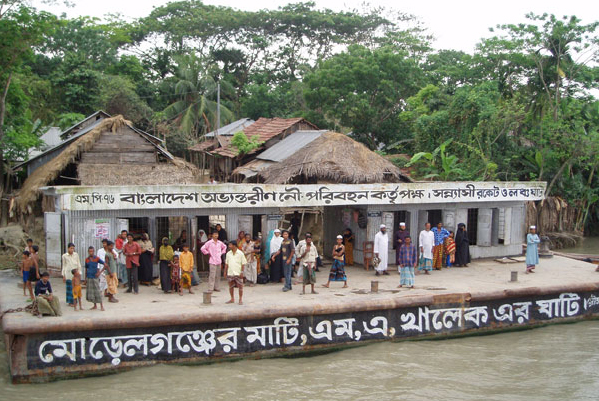 4 February 2009
4 February 2009
| Educational News |
| Politics and Business |
| South Asia related Culture |
| New and updated information |
 • SASNET’s board discussed draft strategy plan
• SASNET’s board discussed draft strategy plan
The SASNET board met
in Lund on Tuesday 27 January 2009. The main issue to discuss was the draft plan for SASNET’s future that a strategy group consisting of members from SASNET’s board plus its root node staff had prepared regarding the long term
planning of the Swedish South Asian Studies
Network, well in advance of the end of the current funding period (before 31 December 2009). The strategy group consists of four board members, Associate Professor Gunnel Cederlöf, Dept. of History, Uppsala University (chairperson of the board; Associate Professor Cecilia Stålsby Lundborg, Division of International Health (IHCAR), Karolinska Institutet Medical University, Stockholm (vice chairperson of the board; Dr. Camilla Orjuela, Division of Peace and Development Studies, School of Global Studies, Göteborg University; and Associate Professor Prosun Bhattacharya, Dept. of Land and Water Resources Engineering, Royal Institute of Technology (KTH), Stockholm. SASNET’s Director Dr. Anna Lindberg has been the coordinator of the group.
 The Board decided to approve SASNET’s budget for 2009, setting aside an
additional sum of money for further development of the Internet Gateway, and to cover the costs for SASNET’s South Asian Reference Group meeting in Colombo on February 10th. Money was also set aside to
complete the work to catalogue the Karl Reinhold Haellquist Memorial Collection. Funding was also provided for the Nordic conference on
South Asian Studies for young scholars in Falsterbo 17–19 August 2009 that SASNET organises.
The Board decided to approve SASNET’s budget for 2009, setting aside an
additional sum of money for further development of the Internet Gateway, and to cover the costs for SASNET’s South Asian Reference Group meeting in Colombo on February 10th. Money was also set aside to
complete the work to catalogue the Karl Reinhold Haellquist Memorial Collection. Funding was also provided for the Nordic conference on
South Asian Studies for young scholars in Falsterbo 17–19 August 2009 that SASNET organises.
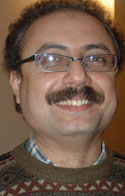 Other decisions included electing a substitute member in SASNET’s South Asian Reference Group after Prof. Zulfiqar Bhutta, Dept. of Paediatrics, Aga Khan University (AKU), Karachi, Pakistan.
The board decided to elect Mr. Mohsin Saeed Khan (photo to the left), researcher in public health from Rawalpindi for the year 2009. Finally, the board decided to keep its membership in the Swedish India Business Council (SIBC).
Other decisions included electing a substitute member in SASNET’s South Asian Reference Group after Prof. Zulfiqar Bhutta, Dept. of Paediatrics, Aga Khan University (AKU), Karachi, Pakistan.
The board decided to elect Mr. Mohsin Saeed Khan (photo to the left), researcher in public health from Rawalpindi for the year 2009. Finally, the board decided to keep its membership in the Swedish India Business Council (SIBC).
Read the verified minutes from the meeting (as a pdf-file)
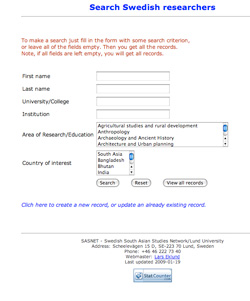 • Time to update information in the Nordic researchers’ database
• Time to update information in the Nordic researchers’ database
SASNET’s searchable database for Swedish and Nordic researchers involved in any kind of South Asia related research has now been updated. The register, created in 2001 has been dormant for a long time but has now been reshuffled, more visibly presented, and with full interactivity for the users. The researchers already represented in the database are obliged to log in and do necessary changes. Log-in information has been sent by e-mail to them. Those Swedish and Nordic researchers not yet represented are kindly invited to join the register and enter information about current South Asia related research in the database. Please go to the entrance page www.sasnet.lu.se/updResearchers.php. As an old user click on the "update" button, as a new user click on the ”new user” button. Please note that your e-mail address will become your user name for future log-in.
To search for individual researchers in the database, please go to www.sasnet.lu.se/registerf.html.
Please note that the database/register currently is only open for Swedish and Nordic researchers.
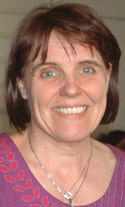 |
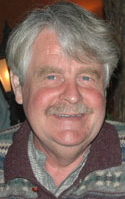 |
SASNET co-organises an international workshop on ”Women and migration in South Asia. Health and Social Consequences” will be held in Colombo, Sri Lanka 9–11 February 2009. The workshop is organised by SASNET in collaboration with the University of Sri Jayewardenepura (SJP) in Colombo, and the Division of International Maternal and Child Health (IMCH) at Uppsala University. Researchers in the field have been invited from all over the South Asia region and from Swedish institutions.
The workshop is also the first effort to realise the concept of SASNET sub-networks, put forward at the informal meeting by SASNET’s South Asian Reference Group held in Delhi in November 2007 (more information), later decided upon by SASNET’s board. One of the reference group members, Dr. Kumudu Wijewardena from the University of Sri Jayewardenepura (SJP) in Colombo will chair the Colombo workshop. A separate meeting will be held with SASNET’s South Asian Reference Group on Tuesday 10 February. See the full programme for the workshop.
SASNET’s director Anna Lindberg and deputy director Lars Eklund will both participate in the workshop.
On his way to Sri Lanka, Lars Eklund will also visit the Maldives for two days, and meet government officials involved in the development of higher education in the Maldives.
Anna Lindberg on the other hand will proceed to Kerala, India after participating in the Colombo workshop. She is going to take part in discussions about the development of the new so-called Sustainable Kerala Network, a Swedish South Asian Network on Sustainable Development initiated by Prof. Baboo Nair, Dept. of Applied Nutrition, Lund University. More information about the Sustainable Kerala Network.
• Ravinder Kaur holds SASNET lecture on India’s Skewed sex Ratio
Professor Ravinder Kaur from the Dept. of Humanities and Social Sciences, Indian Institute of Technology (IIT) Delhi will hold a SASNET lecture at Lund University on Wednesday 11 March, 14.15–16. The lecture is organised in collaboration with Lund University’s Dept. of Economic History, and the Centre for East and South-East Asian Studies (ACE). Prof. Kaur will talk about ”Strangers as Spouses: Marriage Implications of India’s Skewed sex Ratio”, focusing on the continuing gender imbalance and the recent steep declines in the child sex ratio in India. The presentation is based on extensive fieldwork consisting of interviews with cross-region couples in the state of Haryana with additional evidence from Uttar Pradesh. Some fieldwork-based evidence has also been obtained from the bride-sending states of West Bengal and Kerala. An interesting finding and a hopeful sign is the positive sex ratio of the offspring of such marriages. Venue: Conference room, Dept. of Economic History, Scheelevägen 15 B, 1st floor, Lund. Read an abstract.
• SASNET/UPF lecture by Walter Andersen on Islamic militancy in India
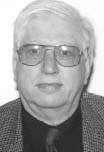 Dr. Walter Andersen, Associate Director of the South Asia Studies Program at Paul H. Nitze School of Advanced International Studies, Johns Hopkins University, Washington, D.C., USA will hold a joint SASNET/UPF (Lund University Association of Foreign Affairs) lecture in Lund on Monday 16 March 2009, at 19.30. Dr. Andersen, who has a PhD in Political Science from the University of Chicago, will lecture on ”Islamic militancy in India: A domestic issue with significant foreign policy implications.” He has recently retired as chief of the U.S. State Department's South Asia Division in the Office of Analysis for the Near East and South Asia. Venue for the seminar: Café Athen, Sandgatan 2, Lund. More information about Dr. Andersen.
Dr. Walter Andersen, Associate Director of the South Asia Studies Program at Paul H. Nitze School of Advanced International Studies, Johns Hopkins University, Washington, D.C., USA will hold a joint SASNET/UPF (Lund University Association of Foreign Affairs) lecture in Lund on Monday 16 March 2009, at 19.30. Dr. Andersen, who has a PhD in Political Science from the University of Chicago, will lecture on ”Islamic militancy in India: A domestic issue with significant foreign policy implications.” He has recently retired as chief of the U.S. State Department's South Asia Division in the Office of Analysis for the Near East and South Asia. Venue for the seminar: Café Athen, Sandgatan 2, Lund. More information about Dr. Andersen.
• SASNET organises conference for young Nordic scholars
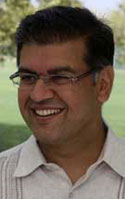 SASNET organises a Nordic conference on
South Asian Studies for young scholars in Falsterbo 17–19 August 2009. The aim of the conference is to gather master students, doctoral students, postdoctoral researchers and other junior scholars in the Nordic countries (including Denmark, Finland, Iceland, Norway and Sweden) who focus on South Asia in their research studies. The conference will provide an opportunity for young scholars to present their future and ongoing research projects, establish contacts with colleagues in the Nordic countries, and discuss the challenges and opportunities of career planning and conducting research in South Asian Studies.
SASNET organises a Nordic conference on
South Asian Studies for young scholars in Falsterbo 17–19 August 2009. The aim of the conference is to gather master students, doctoral students, postdoctoral researchers and other junior scholars in the Nordic countries (including Denmark, Finland, Iceland, Norway and Sweden) who focus on South Asia in their research studies. The conference will provide an opportunity for young scholars to present their future and ongoing research projects, establish contacts with colleagues in the Nordic countries, and discuss the challenges and opportunities of career planning and conducting research in South Asian Studies.
Four keynote speakers have been invited: Prof. Vinayak Chaturvedi (photo), University of California Irvine; Dr. Mirja Juntunen, Nordic Center in India, Uppsala University; Editor Teddy Primack, Academic Documents Associates, New York; and Prof. Pamela Price, Oslo University. The thematic sessions will be led by Prof. Knut A. Jacobsen, University of Bergen; Dr. Catarina Kinnvall, Lund University; Dr. Per Hilding, Stockholm University; and Prof. Devdatt Dubhashi, Chalmers University of Technology, Göteborg. Venue: Falsterbo Kursgård, Ljungvägen 1, Höllviken (south of Malmö). More information on the conference web site.
• More information about SASNET and its
activities
See SASNET’s page, http://www.sasnet.lu.se/sasnet.html
• Doctoral dissertation on the Image-Makers of Kolkata
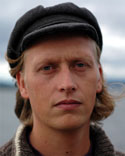 Geir Heierstad, Dept. of Culture Studies and Oriental Languages (IKOS), University of Oslo, will defend his doctoral dissertation titled ”Images of Kumartuli Kumars – The Image-Makers of Kolkata” on Friday 6 February 2009, from 09.15. First opponent is Professor Christina Garsten, Dept. of Social Anthropology, Stockholm University. Venue: Auditorium 2, Helga Engs hus, Blindern, Oslo. The day before, on Thursday 5 February, 16.15–17.00, he will hold a trial lecture at the sam place. The lecture is titled ”Caste and religion in Kumartuli”. Geir Heierstad, who is a social anthropologist, has spent long periods in Kolkata and West Bengal. Already in 2003, he presented a thesis for a Masters degree in Social Anthropology (”Hovedfagsoppgave”) titled ”Nandikar – Staging Globalisation in Kolkata and Abroad”, focusing on Kolkata and based on extensive fieldwork in the Indian metropolis. Read the full thesis on the theatre group Nandan.
Geir Heierstad, Dept. of Culture Studies and Oriental Languages (IKOS), University of Oslo, will defend his doctoral dissertation titled ”Images of Kumartuli Kumars – The Image-Makers of Kolkata” on Friday 6 February 2009, from 09.15. First opponent is Professor Christina Garsten, Dept. of Social Anthropology, Stockholm University. Venue: Auditorium 2, Helga Engs hus, Blindern, Oslo. The day before, on Thursday 5 February, 16.15–17.00, he will hold a trial lecture at the sam place. The lecture is titled ”Caste and religion in Kumartuli”. Geir Heierstad, who is a social anthropologist, has spent long periods in Kolkata and West Bengal. Already in 2003, he presented a thesis for a Masters degree in Social Anthropology (”Hovedfagsoppgave”) titled ”Nandikar – Staging Globalisation in Kolkata and Abroad”, focusing on Kolkata and based on extensive fieldwork in the Indian metropolis. Read the full thesis on the theatre group Nandan.
• Doctoral dissertation on sex selective abortions in India
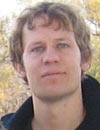 Mattias Larsen, Dept. of Peace and Development Research, School of Global Studies,
Göteborg University will defend his doctoral dissertation on ”Vulnerable Daughters in Times of Change: Emerging Contexts of Discrimination in Himachal Pradesh, India” on Friday 13 March 2009, 13.15. The dissertation deals with the widespread problem in India of using sex selective abortions to discriminate against daughters. Girls are aborted on a massive scale simply because they are girls. A point of departure is the fact that the problem has become prevalent at a time of considerable social and economic change. Faculty opponent is Prof. Ravinder Kaur from the Dept. of Humanities and Social Sciences, Indian Institute of Technology (IIT) in Delhi. Venue: Annedalsseminariet, room 220, Campus Linné, Seminariegatan 1, Göteborg. Read the abstract.
Mattias Larsen, Dept. of Peace and Development Research, School of Global Studies,
Göteborg University will defend his doctoral dissertation on ”Vulnerable Daughters in Times of Change: Emerging Contexts of Discrimination in Himachal Pradesh, India” on Friday 13 March 2009, 13.15. The dissertation deals with the widespread problem in India of using sex selective abortions to discriminate against daughters. Girls are aborted on a massive scale simply because they are girls. A point of departure is the fact that the problem has become prevalent at a time of considerable social and economic change. Faculty opponent is Prof. Ravinder Kaur from the Dept. of Humanities and Social Sciences, Indian Institute of Technology (IIT) in Delhi. Venue: Annedalsseminariet, room 220, Campus Linné, Seminariegatan 1, Göteborg. Read the abstract.
 • ECMSAS conference 2010 to be held in Bonn
• ECMSAS conference 2010 to be held in Bonn
The University of Bonn will host the next European Conference on Modern South Asian Studies (ECMSAS) to be held in 2010. This information was posted in the latest EASAS Newsletter. The projected dates are 26–29 July 2010.
Detailed planning is still taking place, however, and these dates should not yet be regarded as final. A steering committee is now being formed. The contact persons are Dr Heinz Werner Wessler and Anuradha Bhalla. More information will follow on EASAS web site.
Several other European universities have also offered to consider hosting the ECMSAS conference 2012. Potential hosts are however requested to confirm their willingness already by the end of March 2009. At that point, the options will be circulated to the members of the European Association of South Asian Studies (EASAS) to allow a vote to take place (if more than one University is still offering by that time). EASAS’ board has an ambition from now on to plan conferences four years ahead if possible, and therefore be able to confirm the 2014 venue already at the 2010 conference in Bonn, reflecting the time it takes to gather resources, book accommodation etc. If any group at a European University would like to be considered for hosting either the 2012 or the 2014 conferences, they should contact the Interim Chair of EASAS’ board, Prof. Roger Jeffery as soon as possible.
• Paris meeting on the India-EU Study Centres Programme
The so-called India-EU Study Centres Programme was set up in 2008 as an integral part of the India-EU Joint Action Plan adopted in 2005. It aims to promote a better understanding of the EU in India and vice versa through academic and other forms of collaboration. Its chief objective is to strengthen existing study centres on the EU in India and vice versa and to create new study centres on the EU in India and vice versa. Such an agenda requires a close look at the situation prevailing in different states of India and countries of Europe. On Monday 2 March 2009 there will be a one-day meeting in Paris by representatives of European institutions and networks to discuss these issue. The South Asia director of the German Academic Exchange Service (Deutscher Akademischer Austausch Dienst, DAAD) Mr. Ulrich Podewils will present the programme. Mr. Podewils, based at DAAD’s New Delhi office coordinates a consortium supporting the India-EU Study Centres Programme. SASNET will be represented at the Paris meeting by Lars Eklund and Stig Toft Madsen.
• Workshop grants available through the Asia-Europe Workshop Series

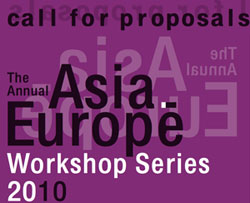 The European
Alliance for Asian Studies is a co-operative framework of some leading
European institutes specializing in Asian Studies. It was established in 1997. Till 2007, the European Alliance for Asian Studies focused exclusively on East and South-East Asia. Since then it has opened up for India and Pakistan, but still excludes the rest of South Asia in its activities. The partner institutions are the Nordic
Institute of Asian Studies (NIAS) at Copenhagen University, Denmark; International Institute
of Asian Studies (IIAS), Leiden University, Netherlands; Centre for International Studies and Research (CERI-Sciences-Po),
Paris, France; European Institute for Asian Studies (EIAS),
Brussels, Belgium; Centro de Estudios de Asia Oriental (CEAO),
Madrid, Spain; School of Oriental and African Studies (SOAS),
London, UK; GIGA Institute
of Asian Studies, Hamburg, Germany; and the Swedish School of Advanced Asia-Pacific
Studies (SSAAPS), Stockholm, Sweden.
The European
Alliance for Asian Studies is a co-operative framework of some leading
European institutes specializing in Asian Studies. It was established in 1997. Till 2007, the European Alliance for Asian Studies focused exclusively on East and South-East Asia. Since then it has opened up for India and Pakistan, but still excludes the rest of South Asia in its activities. The partner institutions are the Nordic
Institute of Asian Studies (NIAS) at Copenhagen University, Denmark; International Institute
of Asian Studies (IIAS), Leiden University, Netherlands; Centre for International Studies and Research (CERI-Sciences-Po),
Paris, France; European Institute for Asian Studies (EIAS),
Brussels, Belgium; Centro de Estudios de Asia Oriental (CEAO),
Madrid, Spain; School of Oriental and African Studies (SOAS),
London, UK; GIGA Institute
of Asian Studies, Hamburg, Germany; and the Swedish School of Advanced Asia-Pacific
Studies (SSAAPS), Stockholm, Sweden.
Together with the Asia-Europe Foundation (ASEF) in Singapore, the European Alliance for Asian Studies invites annual applications for workshop grants through the so-called Asia-Europe Workshop Series (more information). This is a way to stimulate innovative research on contemporary topics of interregional and multilateral importance to both Asia and Europe. The programme is open for researchers in the 43 so-called ASEM (Asia-Europe
Meeting) countries – since 2007 also including India and Pakistan. Junior and senior researchers from
academic institutes in the ASEM member
countries are eligible to apply for grants. The proposed workshops should have an innovative and cross-disciplinary
topic, address shared interests of Asia
and Europe, and stimulate interregional
dialogue. Deadline for applications for the Asia-Europe Workshop Series 2010 is Wednesday 1 July 2009. For full information, see the Call for Proposals.
• Major grant to Nordic researchers for project on Sikh Identity Formation
Nordic researchers have been granted Euro 600 000 from the Joint Committee for Nordic Research Councils for the Humanities and the Social Sciences (NOS-HS) for the Nordcorp project ”Sikh Identity Formation: Generational Transfer of Traditions in the Nordic Countries”. The project leader is Dr. Kristina Myrvold, Division of Indic Religions, Department of History and Anthropology of Religion, Lund University, and other Nordic participants are Prof. Knut Jacobsen at Bergen University, Dr. Ravinder Kaur at Roskilde University, Prof. Hanna Snellman at University of Jyväskylä, and PhD Candidate Laura Schwöbel at University of Jyväskylä.
• Zulfiqar Bhutta gets award for outstanding research achievements in global child health
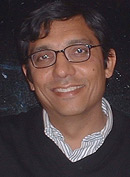 Prof. Zulfiqar Bhutta, Dept. of Paediatrics, Aga Khan University (AKU) in Karachi, Pakistan has been selected to receive the Programme for Global Paediatric Research (PGPR) Award for Outstanding Contributions to Global Child Health. This new award has been set up to honour outstanding research achievements in global child health. The award presentation will take place at the 2009 Pediatric Academic Societies’ Meeting in Baltimore, USA on 2–5 May. Prof. Bhutta, who was also recently assigned to become Head of the Maternal and Child Health at the Aga Khan University, has a long-standing relation to SASNET. He has been keynote speaker at several conferences organised by SASNET, and till December 2008 he was a member of our South Asian reference group.
Prof. Zulfiqar Bhutta, Dept. of Paediatrics, Aga Khan University (AKU) in Karachi, Pakistan has been selected to receive the Programme for Global Paediatric Research (PGPR) Award for Outstanding Contributions to Global Child Health. This new award has been set up to honour outstanding research achievements in global child health. The award presentation will take place at the 2009 Pediatric Academic Societies’ Meeting in Baltimore, USA on 2–5 May. Prof. Bhutta, who was also recently assigned to become Head of the Maternal and Child Health at the Aga Khan University, has a long-standing relation to SASNET. He has been keynote speaker at several conferences organised by SASNET, and till December 2008 he was a member of our South Asian reference group.
• NIAS in Copenhagen seeks new full-time Director
![]() The Nordic Institute of Asian Studies (NIAS) in Copenhagen still seeks a new full-time Director. NIAS is an internationally recognized Asian studies institute established in 1968. Together with 26 Nordic partner institutions NIAS works to promote the study of Asia. The academic focus is on the societal transformations of modern Asia in their historical context. The prospective candidate should be a forward-thinking and energetic director with vision and ideas for the future development of the institute. The position includes research in the Asian Studies field on a 25 percent time basis. It is available as of 1 June 2009 or a.s.a.p. thereafter. Deadline for applications is Monday 9 March 2009. Read the full version of the advertisement (as a pdf-file).
The Nordic Institute of Asian Studies (NIAS) in Copenhagen still seeks a new full-time Director. NIAS is an internationally recognized Asian studies institute established in 1968. Together with 26 Nordic partner institutions NIAS works to promote the study of Asia. The academic focus is on the societal transformations of modern Asia in their historical context. The prospective candidate should be a forward-thinking and energetic director with vision and ideas for the future development of the institute. The position includes research in the Asian Studies field on a 25 percent time basis. It is available as of 1 June 2009 or a.s.a.p. thereafter. Deadline for applications is Monday 9 March 2009. Read the full version of the advertisement (as a pdf-file).
• North Carolina Center for South Asia Studies seeks Assistant Director for Programs
The North Carolina Center for South Asia Studies, a consortium-based Title
VI National Resource Center currently housed at Duke University's Franklin
Center and including the University of North Carolina-Chapel Hill, North
Carolina State University, and North Carolina Central University, USA, is
seeking a full time Assistant Director for Programs. The Assistant
Director for Programs will plan, implement, and coordinate a diverse range
of programs, events, activities and special initiatives across the
consortium campuses in consultation with the Director, Assistant Director
for Finance/Outreach, and the Executive Board. Responsibilities include
administering policies and procedures within the Center, handling and
overseeing the day-to-day affairs of Center administration, and overseeing
and coordinating Center grants and public relations activities (including
the newsletter and website) in consultation with the Assistant Director
for Finance/Outreach and the Director. More information.
• Network for Asia-Pacific Population Research in Ageing formed
The
Asia-Pacific Population Research in Ageing (APPRA) is a network of researchers, NGO workers and civil societies based at the Oxford Institute of Ageing (OIA), University of Oxford, UK. The APPRA network initiates links and collaborative programmes between research institutions in Asia-Pacific region and the Oxford Institute of Ageing (OIA). It also tries to build a bridge between Asia and the Pacific scholars and policy-makers and will provide an opportunity to promote research collaboration, and the pooling of ideas as well as sharing experiences on ageing issues from countries across the Asia-Pacific region. The network members have the opportunity to focus on critical issues of common concern for the ageing population in the region and countries around the globe. Limited fellowship opportunities are also available for short research programmes. Current OIA research activities in Asia include a project on ”Health and ageing in Bangladesh”, where the focus is concentrated on the socio-demographic changes at macro and micro levels and their impact on health and
ageing issues in Bangladesh, and a project on ”Poverty and vulnerability among older people in South Asia”. Dr. Hafiz T.A. Khan is the coordinator for APPRA. More information.
• SAMAJ peer-reviewed on-line journal devoted to social science studies on South Asia
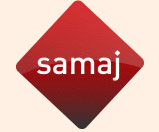 SAMAJ, South Asia Multidisciplinary Academic Journal, is a peer-reviewed, on-line journal, devoted to social science studies on South Asia. It was launched in late 2007 by the Association pour la Recherche sur l’Asie du Sud in France, with an aim to publish scholarly articles written by professional academics as well as doctoral students. Its scope is multidisciplinary, covering studies in history, geography, anthropology, sociology, political science, and economics. More information about SAMAJ on-line journal.
SAMAJ, South Asia Multidisciplinary Academic Journal, is a peer-reviewed, on-line journal, devoted to social science studies on South Asia. It was launched in late 2007 by the Association pour la Recherche sur l’Asie du Sud in France, with an aim to publish scholarly articles written by professional academics as well as doctoral students. Its scope is multidisciplinary, covering studies in history, geography, anthropology, sociology, political science, and economics. More information about SAMAJ on-line journal.
 Recently, SAMAJ published its latest yearly Special Issue focusing on ”'Outraged Communities': Comparative Perspectives on the Politicization of Emotions in South Asia”, with articles by – Nosheen Ali (writing on ”Outrageous State, Sectarianized Citizens:
Deconstructing the ‘Textbook Controversy’ in the Northern Areas, Pakistan”), – Amélie Blom (writing on ”The 2006 Anti-'Danish Cartoons' Riot in Lahore: Outrage and the Emotional Landscape of Pakistani Politics”), – Thomas Blom Hansen (writing on ”The Political Theology of Violence in Contemporary India”), – Pierre Centlivres (writing on ”The Controversy over the Buddhas of Bamiyan”), – Christophe Jaffrelot (writing on ”Hindu Nationalism and the (Not So Easy) Art of Being Outraged: The Ram Setu Controversy”), – Nicolas Jaoul (writing on ”The 'Righteous Anger' of the Powerless.
Investigating Dalit Outrage over Caste Violence”), – Ali Riaz (writing on ”Constructing Outraged Communities and State Responses:
The Taslima Nasreen Saga in 1994 and 2007”), – Charlène Simon (writing on ”The Political Theology of Violence in Contemporary India”) and – Lionel Baixas (writing on ”From Protesters to Martyrs: How to Become a ‘True’ Sikh”). The entire issue is accessible on the net. Go for the SAMAJ Special Issue No. 2.
The next issue of SAMAJ will be edited by Balveer Arora, Stéphanie Tawa Lama-Rewal and Gilles Verniers, and be devoted to ”Indian Elections 2009: Perspectives from the States”.
Recently, SAMAJ published its latest yearly Special Issue focusing on ”'Outraged Communities': Comparative Perspectives on the Politicization of Emotions in South Asia”, with articles by – Nosheen Ali (writing on ”Outrageous State, Sectarianized Citizens:
Deconstructing the ‘Textbook Controversy’ in the Northern Areas, Pakistan”), – Amélie Blom (writing on ”The 2006 Anti-'Danish Cartoons' Riot in Lahore: Outrage and the Emotional Landscape of Pakistani Politics”), – Thomas Blom Hansen (writing on ”The Political Theology of Violence in Contemporary India”), – Pierre Centlivres (writing on ”The Controversy over the Buddhas of Bamiyan”), – Christophe Jaffrelot (writing on ”Hindu Nationalism and the (Not So Easy) Art of Being Outraged: The Ram Setu Controversy”), – Nicolas Jaoul (writing on ”The 'Righteous Anger' of the Powerless.
Investigating Dalit Outrage over Caste Violence”), – Ali Riaz (writing on ”Constructing Outraged Communities and State Responses:
The Taslima Nasreen Saga in 1994 and 2007”), – Charlène Simon (writing on ”The Political Theology of Violence in Contemporary India”) and – Lionel Baixas (writing on ”From Protesters to Martyrs: How to Become a ‘True’ Sikh”). The entire issue is accessible on the net. Go for the SAMAJ Special Issue No. 2.
The next issue of SAMAJ will be edited by Balveer Arora, Stéphanie Tawa Lama-Rewal and Gilles Verniers, and be devoted to ”Indian Elections 2009: Perspectives from the States”.
• Asian Studies WWW Monitor excellent source to find resources on South Asia research
The Asian Studies WWW Monitor is an electronic journal founded and edited by Dr T. Matthew Ciolek of the RSPAS, The Australian National University (ANU) in Canberra since 1994. An associated mailing list 'asia-www-monitor' was also established the same year. It is of great interest for researchers working on South Asia related projects. The journal, a pioneering and the only publication of this kind in the world, provides virtually daily abstracts and reviews of new/updated online resources of significance to research, teaching and communications dealing with Asian Studies. The periodical forms a key element of the global, cooperative project Asian Studies WWW Virtual Library.
Daily contents’ summaries and evaluations published in the web edition of the Journal are also disseminated via a mailing list. Among useful South Asia studies resource data bases presented during January 2009 are: the India Human Development Survey of 2005 (by
ICPSR, Institute for Social Research, University of Michigan, Ann Arbor, Michigan, USA); the Punjab Research Group (housed at
Faculty of Humanities, De Montfort University, Leicester, UK); and Caste in South Asia – A Gateway to Internet Resources (by Center for South Asian Studies, University of Hawaii at Manoa, USA). Go to the Asian Studies WWW Monitor web page.
• Pakistaniaat: A Journal of Pakistan Studies invites submissions for its first issue
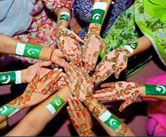 Pakistaniaat: A Journal of Pakistan Studies is a coming peer-reviewed, multi-disciplinary electronic journal that aims to provide an inclusive venue to all those interested in issues specifically related to Pakistan, its culture, literature, and its place in the region as well as the world. The ambition is to accomplish the important mission of ”covering Pakistan” by publishing scholarly articles, creative works, translations, and reviews of books about Pakistan. Submissions are now invited for the first issue of the journal to be published in June 2009. It may include scholarly articles, creative works (fiction, creative nonfiction, and poetry), and book reviews that focus on some aspect of Pakistan or Pakistani culture. More information.
Pakistaniaat: A Journal of Pakistan Studies is a coming peer-reviewed, multi-disciplinary electronic journal that aims to provide an inclusive venue to all those interested in issues specifically related to Pakistan, its culture, literature, and its place in the region as well as the world. The ambition is to accomplish the important mission of ”covering Pakistan” by publishing scholarly articles, creative works, translations, and reviews of books about Pakistan. Submissions are now invited for the first issue of the journal to be published in June 2009. It may include scholarly articles, creative works (fiction, creative nonfiction, and poetry), and book reviews that focus on some aspect of Pakistan or Pakistani culture. More information.
• Brill’s Studies in South and Southwest Asian Languages introduced
 Brill’s Studies in South and Southwest Asian Languages (BSSAL) is a new peer-reviewed series that provides a venue for high-quality monograph-length descriptive and theoretical studies on the languages of South and Southwest Asia. In the political sense, South Asia encompasses the seven independent states Bangladesh, Bhutan, India, the Maldives, Nepal, Pakistan and Sri Lanka, but linguistically and culturally it also includes some adjacent areas to the east and north, notably Tibet. Southwest Asia is understood here as comprising the Iranian languagespeaking territory to the west of South Asia, i.e., the states of Afghanistan and Iran and the geocultural transnational region Kurdistan, consisting of parts of Turkey, Iraq, Iran and Syria. For enquiries or to submit a manuscript proposal, please contact the Series Editors: Dr. Anju Saxena from the Division
for Linguistics and Computer Lingustics, Uppsala University, and Dr. John Peterson, University of Osnabrück/University of Leipzig. The editorial board includes Prof.
Udaya Narayana Singh from Central Institute of Indian Languages in Mysore. More information about thes series.
Brill’s Studies in South and Southwest Asian Languages (BSSAL) is a new peer-reviewed series that provides a venue for high-quality monograph-length descriptive and theoretical studies on the languages of South and Southwest Asia. In the political sense, South Asia encompasses the seven independent states Bangladesh, Bhutan, India, the Maldives, Nepal, Pakistan and Sri Lanka, but linguistically and culturally it also includes some adjacent areas to the east and north, notably Tibet. Southwest Asia is understood here as comprising the Iranian languagespeaking territory to the west of South Asia, i.e., the states of Afghanistan and Iran and the geocultural transnational region Kurdistan, consisting of parts of Turkey, Iraq, Iran and Syria. For enquiries or to submit a manuscript proposal, please contact the Series Editors: Dr. Anju Saxena from the Division
for Linguistics and Computer Lingustics, Uppsala University, and Dr. John Peterson, University of Osnabrück/University of Leipzig. The editorial board includes Prof.
Udaya Narayana Singh from Central Institute of Indian Languages in Mysore. More information about thes series.
• More information about South Asia related
research at Swedish and Nordic universities
See SASNET’s page, http://www.sasnet.lu.se/research.html
Go for the |
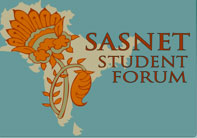 |
•
Nordic Centre in India invites applications for full semester
program in Hyderabad
 The Nordic Centre in India university consortium (NCI) again organises a full semester
program for Nordic students at the University of Hyderabad in the Fall 2009.
Since a few years, NCI has an arrangement with the University
of Hyderabad (UoH) and its Study India Program to allow
15 Nordic students to be admitted there, and to take courses
on various social science and humanities subjects. The aim of the agreement is to allow Nordic students to study India in India, to give them both a sound academic knowledge of India as well as the experience you only gain by living there. In most cases, the UoH degree should count towards you final degree at your home university.
Please note that applicants must come from the Nordic universities that are members of the NCI consortium. The Hyderabad semester last from third week of July to
first week of December and from first week of January to
first week of May. Apply now for Fall term 2009! More
information.
The Nordic Centre in India university consortium (NCI) again organises a full semester
program for Nordic students at the University of Hyderabad in the Fall 2009.
Since a few years, NCI has an arrangement with the University
of Hyderabad (UoH) and its Study India Program to allow
15 Nordic students to be admitted there, and to take courses
on various social science and humanities subjects. The aim of the agreement is to allow Nordic students to study India in India, to give them both a sound academic knowledge of India as well as the experience you only gain by living there. In most cases, the UoH degree should count towards you final degree at your home university.
Please note that applicants must come from the Nordic universities that are members of the NCI consortium. The Hyderabad semester last from third week of July to
first week of December and from first week of January to
first week of May. Apply now for Fall term 2009! More
information.
• Summer course
on 'Contemporary India' to be held for seventh time in Hyderabad
For the seventh time the course
'Contemporary India' will be held in the Summer 2008 at the
University of Hyderabad, in collaboration with the
Nordic Centre in India. The course, running for four weeks from 21 June to 18 July
2009, is tailor-made for Nordic students and introduces issues
o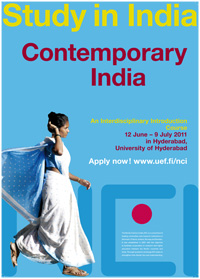 f politics, culture and economy. It consists of the following
five parts: • Introductory course: The diversity of
India:
• The political system and questions of identity: •
Globalisation and the economy focusing on the city of Hyderabad:
• Development, environment and human rights: and • Indian
literature and cinema. The students coming from most Nordic
countries (and universities that are members of the Nordic
Centre in India) were given board and lodging in an excellent
guest house. Deadline for applications for the 2009 course is 15 March. Each member university nominates their candidates
and reserves on this course. More
information.
f politics, culture and economy. It consists of the following
five parts: • Introductory course: The diversity of
India:
• The political system and questions of identity: •
Globalisation and the economy focusing on the city of Hyderabad:
• Development, environment and human rights: and • Indian
literature and cinema. The students coming from most Nordic
countries (and universities that are members of the Nordic
Centre in India) were given board and lodging in an excellent
guest house. Deadline for applications for the 2009 course is 15 March. Each member university nominates their candidates
and reserves on this course. More
information.
• NCI summer course on environmental issues in Bangalore
For the third year, NCI offers a summer course on environmental issues in India, in Bangalore during the period 5 July to 1 August 2009. The course titled “Approaching
the Environment in India. New theories and methods in the study of the nature-society interface”, is organised in collaboration
with the Institute for Social and Economic Change (ISEC)
in Bangalore. It is a four-weeks multi-disciplinary course for graduate and post-graduate
students from the Nordic countries, that seeks to introduce
students to recent theories and methods in the study of contemporary
environmental issues in India. Deadline for applications for the 2009 course is 15 March. More
information.
• NCI summer course on demography in Mumbai
For the third year, NCI also offers a summer course on “Demography,
Gender and Reproductive Health”, in Mumbai during the period 12 July to 8 August 2009. It is an an introduction to population studies
in India, organised in collaboration with the International Institute for Population
Science (IIPS) in Mumbai. The course
is a multi-disciplinary course that is open for under-graduate
and graduate students from the Nordic countries. Deadline for applications for the 2009 course is 15 March. More
information.
• NCI summer course on social science research methods
For the second yar NCI has offered a course titled ”Methods and Applications in Social Science Research”, organised in collaboration
with the Institute for Social and Economic Change (ISEC)
in Bangalore. The latest course was held during the period 4 January to 1 February, and was meant to be a multi-disciplinary course for Nordic Masters and Doctoral students. A new course will be held in the summer, between 2–29 August 2009. Deadline for applications for the 2009 course is 15 March. More information.
• More information about South Asia related
education at Swedish and Nordic universities
See SASNET’s page, http://www.sasnet.lu.se/education.html
• TERI organises 9th annual Delhi Sustainable Development Summit
 The Energy and Resources Institute (TERI) organises its 9th annual DSDS (Delhi Sustainable Development Summit) in New Delhi 5–7 February 2009. The summit focuses on the theme “Towards Copenhagen: an equitable and ethical approach” and explore ways to arrive at a global consensus on climate change beyond 2012. The Delhi Sustainable Development Summits are annual flagship events
of TERI being organized since 2001. They are global fora that seeks to provide
long-term solutions for sustainable development. Every year, DSDS summits witness participation by
global stakeholders including heads of state/government, ministers, and dignitaries
comprising Nobel laureates, development practitioners, scientists, academicians,
and corporate leaders from across the world. As usual, the DSDS summit is preceded by a
CEO Forum on Wednesday
4 February 2009. The 2009 CEO Forum focuses on the theme ‘Climate Change: perspective from the change makers in business’. It will review issues and address the challenges businesses are likely to face due to climate change. Focus will be on ‘how’ and ‘why’ green is good. Business opportunities in the emerging scenario will be examined. Venue for TERI’s DSDS summit: Hotel Ashok, New Delhi, India. More information.
The Energy and Resources Institute (TERI) organises its 9th annual DSDS (Delhi Sustainable Development Summit) in New Delhi 5–7 February 2009. The summit focuses on the theme “Towards Copenhagen: an equitable and ethical approach” and explore ways to arrive at a global consensus on climate change beyond 2012. The Delhi Sustainable Development Summits are annual flagship events
of TERI being organized since 2001. They are global fora that seeks to provide
long-term solutions for sustainable development. Every year, DSDS summits witness participation by
global stakeholders including heads of state/government, ministers, and dignitaries
comprising Nobel laureates, development practitioners, scientists, academicians,
and corporate leaders from across the world. As usual, the DSDS summit is preceded by a
CEO Forum on Wednesday
4 February 2009. The 2009 CEO Forum focuses on the theme ‘Climate Change: perspective from the change makers in business’. It will review issues and address the challenges businesses are likely to face due to climate change. Focus will be on ‘how’ and ‘why’ green is good. Business opportunities in the emerging scenario will be examined. Venue for TERI’s DSDS summit: Hotel Ashok, New Delhi, India. More information.
• Daya Kishan Thussu lectures at Focus Asia conference on Media
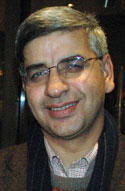 Dr. Daya Kishan Thussu from the University of Westminster, UK, has been invited by SASNET to lecture at a Focus Asia conference on ”Media Cultures and Politics in Asia and Beyond” that will be held at Lund University 26–27 February 2009. Focus Asia is a yearly event organised by the Centre for East and South-East Asian Studies (ACE) at Lund University, and this 10th Focus Asia event brings together leading media scholars who will discuss media in Asia and beyond (more information). Several of the lectures at the Focus Asia sonference will address the relationship between media, democracy and the public sphere in different national and regional contexts. Dr. Thussu will talk about ”Infotainment – Indian Style: Changing Contours of TV News in the
World’s Largest Democracy” on Thursday 26 February, 16.00–17.30. Besides being Professor of International Communication at the Dept. of Journalism and Mass Communication,
School of Media, Arts and Design,
University of Westminster, Dr. Thussu is also the
Managing Editor of the SAGE journal ”Global Media and Communication”. Current research interests include: globalization and its impact on media cultures, particularly in the South; political economy of international communication; global news flow; internationalizing media studies; media and mediated culture in India and among South Asian diaspora. Venue for Focus Asia: Palaestra, Paradisgatan 2, Lund.
The lectures are open to the public and entry is free of charge. Read the full programme for the Focus Asia February 2009.
Dr. Daya Kishan Thussu from the University of Westminster, UK, has been invited by SASNET to lecture at a Focus Asia conference on ”Media Cultures and Politics in Asia and Beyond” that will be held at Lund University 26–27 February 2009. Focus Asia is a yearly event organised by the Centre for East and South-East Asian Studies (ACE) at Lund University, and this 10th Focus Asia event brings together leading media scholars who will discuss media in Asia and beyond (more information). Several of the lectures at the Focus Asia sonference will address the relationship between media, democracy and the public sphere in different national and regional contexts. Dr. Thussu will talk about ”Infotainment – Indian Style: Changing Contours of TV News in the
World’s Largest Democracy” on Thursday 26 February, 16.00–17.30. Besides being Professor of International Communication at the Dept. of Journalism and Mass Communication,
School of Media, Arts and Design,
University of Westminster, Dr. Thussu is also the
Managing Editor of the SAGE journal ”Global Media and Communication”. Current research interests include: globalization and its impact on media cultures, particularly in the South; political economy of international communication; global news flow; internationalizing media studies; media and mediated culture in India and among South Asian diaspora. Venue for Focus Asia: Palaestra, Paradisgatan 2, Lund.
The lectures are open to the public and entry is free of charge. Read the full programme for the Focus Asia February 2009.
• SASNET funded Delhi conference on hybrid photovoltaic-thermal technology
A conference on ”Implementation strategies for the transfer of hybrid photovoltaic-thermal technology (H-PV/T) from research to lab to field”, will be held in New Delhi 25–28 March 2009. The conference, partly funded by SASNET, is organised by the Dept. of Mechanical Engineering, School of Technology and Design,
Växjö University, Sweden in collaboration with the Indian Institute of Technology (IIT) Delhi. It is supposed to function as an incitament to introduce solar energy in Indian villages without electricity. Different aspects – technical as well as social and cultural will be discussed. Persons working or having knowledge of solar energy technologies in the area related to agriculture in remote area will be invited to the conference, where participants first learn the technologies with practicals and convinced to desire to work in future with our networking groups, and NGO representatives can share their experience with problem faced by them during implementation of such technologies in rural area. More information.
• 7,000 participants expected to the 2009 American Association for Asian Studies Annual Meeting
The 2009 AAS (American Association for Asian Studies) Annual Meeting will be held 26–29 March 2009 in Chicago, USA. Founded in 1941, AAS with approximately 7,000 members worldwide is a scholarly, non-political, non-profit professional association open to all persons interested in Asia. It seeks through publications, meetings, and seminars to facilitate contact and an exchange of information among scholars to increase their understanding of East, South, and Southeast Asia. It counts among its members scholars, business people, diplomats, journalists, and interested lay persons. At the 2008 Annual Meeting held 3–6 April in Atlanta a large number of sessions related to South Asia studies (go for detailed information about the South Asia Sessions). Absolute deadline for preregistration is 5 March 2009. More information.
• Eighth AAS Dissertation Workshop to be held in Chicago
 The American Association for Asian Studies also invites participants to its eighth Dissertation Workshop, to be held in Chicago 29 March – 1 April 2009. The theme for 2009 AAS Dissertation Workshop is “The Politics of Environment”. It is intended to bring together doctoral students in the humanities and social sciences who are: (1) developing dissertation proposals or are in early phases of research or dissertation writing; and who are (2) also dealing with the kinds of issues mentioned above in the context contemporary or historic Asian states and societies. The workshop will be limited to 12 students, ideally from a broad array of disciplines and working on a wide variety of materials in a variety of time periods, and in various regions of Asia. It also will include a small multidisciplinary and multi-area faculty with similar concerns. More information.
The American Association for Asian Studies also invites participants to its eighth Dissertation Workshop, to be held in Chicago 29 March – 1 April 2009. The theme for 2009 AAS Dissertation Workshop is “The Politics of Environment”. It is intended to bring together doctoral students in the humanities and social sciences who are: (1) developing dissertation proposals or are in early phases of research or dissertation writing; and who are (2) also dealing with the kinds of issues mentioned above in the context contemporary or historic Asian states and societies. The workshop will be limited to 12 students, ideally from a broad array of disciplines and working on a wide variety of materials in a variety of time periods, and in various regions of Asia. It also will include a small multidisciplinary and multi-area faculty with similar concerns. More information.
• Roskilde PhD research course on Anthro-Politics
 Roskilde University in Denmark hosts a PhD research course on ”Anthro-Politics – Doing 'Local' Research on Globalisation Issues”, 18–20 May 2009. The course is organizes by the Graduate School of International Development Studies (IDS) of the Roskilde University, Department of Society and Globalization. Anthro-Politics is a thematic approach to the study of global politics and local cultures and material practices. It charts the connections between representations and representativeness; gender and the economy; performance and performativity; assemblies and assemblages; the global manifestations of local culture and the local manifestation of global culture. The 5 ECTS course is open to students in development studies, anthropology, sociology, political science, history, public health, geography, gender studies, and fieldwork-oriented humanities are encouraged to submit papers. It is designed for a maximum of 20 participants with reflection papers. Applications for the course and an abstract of a maximum of 500 words should to be sent to Inge Jensen no later than 20 February 2009. More information.
Roskilde University in Denmark hosts a PhD research course on ”Anthro-Politics – Doing 'Local' Research on Globalisation Issues”, 18–20 May 2009. The course is organizes by the Graduate School of International Development Studies (IDS) of the Roskilde University, Department of Society and Globalization. Anthro-Politics is a thematic approach to the study of global politics and local cultures and material practices. It charts the connections between representations and representativeness; gender and the economy; performance and performativity; assemblies and assemblages; the global manifestations of local culture and the local manifestation of global culture. The 5 ECTS course is open to students in development studies, anthropology, sociology, political science, history, public health, geography, gender studies, and fieldwork-oriented humanities are encouraged to submit papers. It is designed for a maximum of 20 participants with reflection papers. Applications for the course and an abstract of a maximum of 500 words should to be sent to Inge Jensen no later than 20 February 2009. More information.
• Journal of South Asian Popular Culture invites to
4th International Conference
The Journal of South Asian Popular Culture invites to its
4th International Conference to be held at the University of Manchester, UK, 6–7 July 2009. The keynote spakers will be
Purnima Mankekar from University of California Losa Angeles (UCLA), USA, and
Rosie Thomas from University of Westminster, UK. Interdisciplinary contributions are invited from across subjects in the arts,
humanities and social sciences to engage with notions of popular culture. 'South Asian popular
culture' is defined in a broad and inclusive way to incorporate lived and textual cultures, the mass
and new media, different ways of life, and discursive modes of representation. Central to the
formation of popular cultures are articulations of the economic, social and political spheres and
the conference especially welcomes papers that will highlight these issues. All conference papers will be invited to be submitted for consideration to be published as peer
reviewed articles in the journal.
Deadline for the submission of abstracts is 23 February 2009. More information.
• Manchester conference on the public representation of a religion called Hinduism
An International Conference on ”The Public Representation of a Religion called Hinduism:
Modern Gurus, Sampradayas and Media Hinduism” will be held at University of Manchester in UK 8–9 July 2009. This seminar is part of a two year network project on the ‘public representation of a religion called
Hinduism’, funded by the Arts and Humanities Research Council in the UK. The focus of the Manchester session is on ways in which Hinduism is represented firstly through
the ideas and practices of modern gurus and Sampradayas, and secondly, through the full range of
modern media and communications technology. These two themes frequently overlap and one of
the objectives at the conference will be to investigate the relationship between traditional Hindu modes of organisation
(sampradayas, living gurus and their disciples) and the multiple possibilities provided by media and
communications technology. Paper proposals for the Manchester session should be sent to to Dr. John Zavos before 30 March 2009. Previous meetings of the research project have been held held at Jawaharlal Nehru University in Delhi, the Centre for the
Study of Developing Societies in Delhi, at Wabash College, Crawfordsville, USA, and University of Houston-Clear Lake, USA. More information.
• Khulna conference on Solid Waste Management of Waste
An International conference on Solid Waste Management of Waste will be held in Khulna, Bangladesh, 9–10 November 2009. It will be organised by the Dept. of Civil Engineering at Khulna University of Engineering & Technology in collaboration with the
Bauhaus University in Weimar, Germany and the EU-Asia Pro Eco II Programme of the European Commission. The conference is part of an ongoing three years partnership programme under this programme, also involving the Asian Institute of Technology in Thailand, and
Lublin University of Technology in Poland. More information.
• Other conferences connected to South Asian
studies arranged all over the World
See SASNET’s page, http://www.sasnet.lu.se/conferences.html#conf
Important lectures and seminars in Scandinavia
• Mats Mogren lectures on the Ceylonese plantation economy
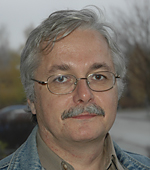 Dr. Mats Mogren from the Dept. of Classical Archaeology and Ancient History, Lund University, holds a public lecture titled ”Coffee with a bitter aftertaste”, at the Museum of Far Eastern Antiquities (Östasiatiska museet) in Stockholm on Saturday 7 February 2009, 13–15. In his lecture, Dr. Mogren tells the story about how the plantation economy of the colonial period totally transformed the landscape of Ceylon (present-day Sri Lanka). The lecture is part of a series of lectures about places along the Silk Road and historical contacts over the entire Eurasian continent, organised by the Museum of Far Eastern Antiquities in collabporation with the Muesum of Ethnography and the Museum of Mediterranean and Near Eastern Antiquities. Venue for the seminar: Östasiatiska museet, Skeppsholmen, Stockholm.
Dr. Mats Mogren from the Dept. of Classical Archaeology and Ancient History, Lund University, holds a public lecture titled ”Coffee with a bitter aftertaste”, at the Museum of Far Eastern Antiquities (Östasiatiska museet) in Stockholm on Saturday 7 February 2009, 13–15. In his lecture, Dr. Mogren tells the story about how the plantation economy of the colonial period totally transformed the landscape of Ceylon (present-day Sri Lanka). The lecture is part of a series of lectures about places along the Silk Road and historical contacts over the entire Eurasian continent, organised by the Museum of Far Eastern Antiquities in collabporation with the Muesum of Ethnography and the Museum of Mediterranean and Near Eastern Antiquities. Venue for the seminar: Östasiatiska museet, Skeppsholmen, Stockholm.
 • Oslo seminar on Deconstructing the War on Teror
• Oslo seminar on Deconstructing the War on Teror
An International seminar titled ”Deconstructing the War on Teror” will be held in in Oslo on Sunday 22 February 2009, 12–19. The topics to be covered include the role of Nato in Afghanistan – rethinking strategies; Pakistan and India – terrorism in both countries; Civilian human rights in the West and in Iraq and Afghanistan; and Racism and Islamophobia as a result of the ‘War on Terror’. Speakers include the researcher Elisabeth Eide who will talk about Afghanistan, the present security situation and also media representation of the conflict. Dr. Muhammed Idrees Ahmed from the University of Stratchlyde will be the moderator for the discussions. Venue: Chateau Neuf, Slemdalsveien 11, Oslo. More information.
• Sarasu Thomas lectures in Lund
Associate Professor Sarasu Thomas from the National Law School of India University in Bangalore will lecture at Lund University on Tuesday 24 February 2009, 13.00–16.00. He will talk about ”Gender and Family Law. The Case India”. Dr. Thomas has been invited to Sweden by the Division of Sociology of Law at Lund University, since he is involved in a joint research project. Venue: Seminar room, Division of Sociology, Allhelgona Kyrkogata 14 J, Lund. More information.
• Robin Coningham lectures on Indian Ocean trade in Lund
 Professor Robin Coningham from the Dept. of Archaeology, Durham University, UK, will hold four South Asia related open lectures guest lectures at Lund University 2–5 March 2009. He has been invited by the Institute of Archaeology and Ancient History, Lund University. Prof. Coningham is one of the leading experts on the archaeology of South Asia and Iran, and he is heading research projects in Iran, Pakistan and Sri Lanka. The three lectures chosen for the Lund visit are mirroring some of his major research interests. On Monday 2 March, 13–15, he will lecture about ”Towards an Archaeology of Buddhism: theory and practice”; on
Tuesday 3 March, 13–15, he will lecture about ”Dark Age or Continutiy: reexamining South Asia's Early Historic reurbanisation”; on
Wednesday 4 March, 9–11, he will lecture about ”Before the Imperial Frontiers: Sri Lanka and the origins of Indian Ocean trade”; and finally on Thursday 5 February, 13–15, he will lecture about ”The Archaeology of Early Long Distance Trade in South Asia”. Venue: Institute of Archaeology and Ancient History, Sandgatan 1, Lund, first floor (Monday, Tuesday and Thursday) and ground floor (Wednesday). All are welcome. Prof. Coningham’s visit is rendered possible by generous grants from the Wenner-Gren Foundations and Stiftelsen Elisabeth Rausings minnesfond.
Professor Robin Coningham from the Dept. of Archaeology, Durham University, UK, will hold four South Asia related open lectures guest lectures at Lund University 2–5 March 2009. He has been invited by the Institute of Archaeology and Ancient History, Lund University. Prof. Coningham is one of the leading experts on the archaeology of South Asia and Iran, and he is heading research projects in Iran, Pakistan and Sri Lanka. The three lectures chosen for the Lund visit are mirroring some of his major research interests. On Monday 2 March, 13–15, he will lecture about ”Towards an Archaeology of Buddhism: theory and practice”; on
Tuesday 3 March, 13–15, he will lecture about ”Dark Age or Continutiy: reexamining South Asia's Early Historic reurbanisation”; on
Wednesday 4 March, 9–11, he will lecture about ”Before the Imperial Frontiers: Sri Lanka and the origins of Indian Ocean trade”; and finally on Thursday 5 February, 13–15, he will lecture about ”The Archaeology of Early Long Distance Trade in South Asia”. Venue: Institute of Archaeology and Ancient History, Sandgatan 1, Lund, first floor (Monday, Tuesday and Thursday) and ground floor (Wednesday). All are welcome. Prof. Coningham’s visit is rendered possible by generous grants from the Wenner-Gren Foundations and Stiftelsen Elisabeth Rausings minnesfond.
• Harsh V. Pant lectures in Stockholm on ”Iran-Pakistan relations
![]() Dr. Harsh V. Pant, Dept. of Defence Studies, King’s College, London, UK will hold a lecture on ”Iran-Pakistan relations in the face of deteriorating security in Afghanistan” in Stockholm on Tuesday 10 March 2009, 10.00–11.30. Dr. Pant is also an Associate with the King’s Centre for Science and Security Studies and lectures at the UK Defence Academy. His current research is focused on Asia-Pacific security and defence issues. He is the author of ”Contemporary Debates in Indian Foreign and Security Policy: India Negotiates Its Rise in the International System” (New York: Palgrave MacMillan The seminar is organised by the
Swedish Defence Research Agency (FOI). Venue: Conference room Saturnus, FOI,
Gullsfossgatan 6, Kista (close to Stockholm).
Registration should be made to Annika Sundholm Parkdal by 6 March.
Dr. Harsh V. Pant, Dept. of Defence Studies, King’s College, London, UK will hold a lecture on ”Iran-Pakistan relations in the face of deteriorating security in Afghanistan” in Stockholm on Tuesday 10 March 2009, 10.00–11.30. Dr. Pant is also an Associate with the King’s Centre for Science and Security Studies and lectures at the UK Defence Academy. His current research is focused on Asia-Pacific security and defence issues. He is the author of ”Contemporary Debates in Indian Foreign and Security Policy: India Negotiates Its Rise in the International System” (New York: Palgrave MacMillan The seminar is organised by the
Swedish Defence Research Agency (FOI). Venue: Conference room Saturnus, FOI,
Gullsfossgatan 6, Kista (close to Stockholm).
Registration should be made to Annika Sundholm Parkdal by 6 March.
• Jan af Geijerstam lectures on Swedish Industrial memories in India
Dr. Jan af Geijerstam, Division of History of Science and Technology, Royal Institute of Technology (KTH), Stockholm, holds a public lecture on ”Swedish Industrial memories in India”, at the Museum of Far Eastern Antiquities (Östasiatiska museet) in Stockholm on Saturday 14 March 2009, 13–15, focusing on three Swedish metallurgists Nils Wilhelm Mitander, Julius Ramsay and Carl Gustaf Wittenström who in the 1860s established pioneering iron-making enterprises, based on the most modern European technology of the time. The lecture is part of a series of lectures about places along the Silk Road and historical contacts over the entire Eurasian continent, organised by the Museum of Far Eastern Antiquities in collabporation with the Muesum of Ethnography and the Museum of Mediterranean and Near Eastern Antiquities. Venue for the seminar: Östasiatiska museet, Skeppsholmen, Stockholm.
Business and Politics
• Information about South Asia related business and politics in Sweden
See SASNET's page, http://www.sasnet.lu.se/polbuss.html
South Asia related culture in Scandinavia
• Sazed ul Alam back for concert in Sweden
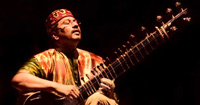 The Sitar player Sazed ul Alam will perform Indian classical music in Malmö on Wednesday 25 February 2009, from 20.00, together with Shiv Shankar on Tablas. Sazed ul Alam previously lived in Malmö, but since a few years back he lives in Spain. Venue: Inkonst Theatre, Bergsgatan 29, Malmö. More information.
The Sitar player Sazed ul Alam will perform Indian classical music in Malmö on Wednesday 25 February 2009, from 20.00, together with Shiv Shankar on Tablas. Sazed ul Alam previously lived in Malmö, but since a few years back he lives in Spain. Venue: Inkonst Theatre, Bergsgatan 29, Malmö. More information.
• More information about South Asia related culture
in Sweden and Scandinavia
See SASNET’s page, http://www.sasnet.lu.se/culture.html
New and updated items on SASNET web site
• Swedish departments where research on
South Asia is going on:
Constantly added to the list of research environments at Swedish
universities, presented by SASNET. The full list now includes 237 departments,
with detailed descriptions of the South Asia related research and education
taking place! Go to http://www.sasnet.lu.se/environment.html
ƒ Division of Clinical Immunology, Dept. of Laboratory Medicine, Karolinska Institutet Medical University
ƒ School of Innovation, Design and Engineering, Mälardalen University, Campus Västerås
ƒ School of Sustainable Development of Society and Technology, Mälardalen University, Campus Västerås
• Useful travelling information
Look at http://www.sasnet.lu.se/travelling.html.
Updated travel advises from the The British Foreign & Commonwealth
Office about safety aspects on travelling to the countries of
South Asia.
Best regards,
Lars Eklund
deputy director/webmaster
SASNET/Swedish South Asian Studies Network
SASNET is a national network for research, education, and information about South Asia based at Lund University. Its aim is to promote a dynamic networking process in which Swedish researchers co-operate with researchers in South Asia and globally.
The SASNET network is open to all the sciences. Priority is given to interdisciplinary cooperation across faculties, and more particularly to institutions in the Nordic countries and South Asia. SASNET believes that South Asian studies will be most fruitfully pursued as a cooperative endeavour between researchers in different institutions who have a solid base in their mother disciplines.
The network is financed by Sida (Swedish
International Development Cooperation Agency) and by Lund University.
Postal address: SASNET – Swedish South Asian Studies Network,
Scheelevägen 15 D, SE-223 70 Lund, Sweden
Visiting address: Ideon Research Park, House Alpha 1 (first floor,
room no. 2040), in the premises of the Centre for East and South
East Asian Studies at Lund University (ACE).
Phone: + 46 46 222 73 40
Fax: + 46 46 222 30 41
E-mail: sasnet@sasnet.lu.se
Web site:
http://www.sasnet.lu.se
SASNET - Swedish South Asian Studies Network/Lund
University
Address: Scheelevägen 15 D, SE-223 70 Lund, Sweden
Phone: +46 46 222 73 40
Webmaster: Lars Eklund
Last updated
2010-11-30